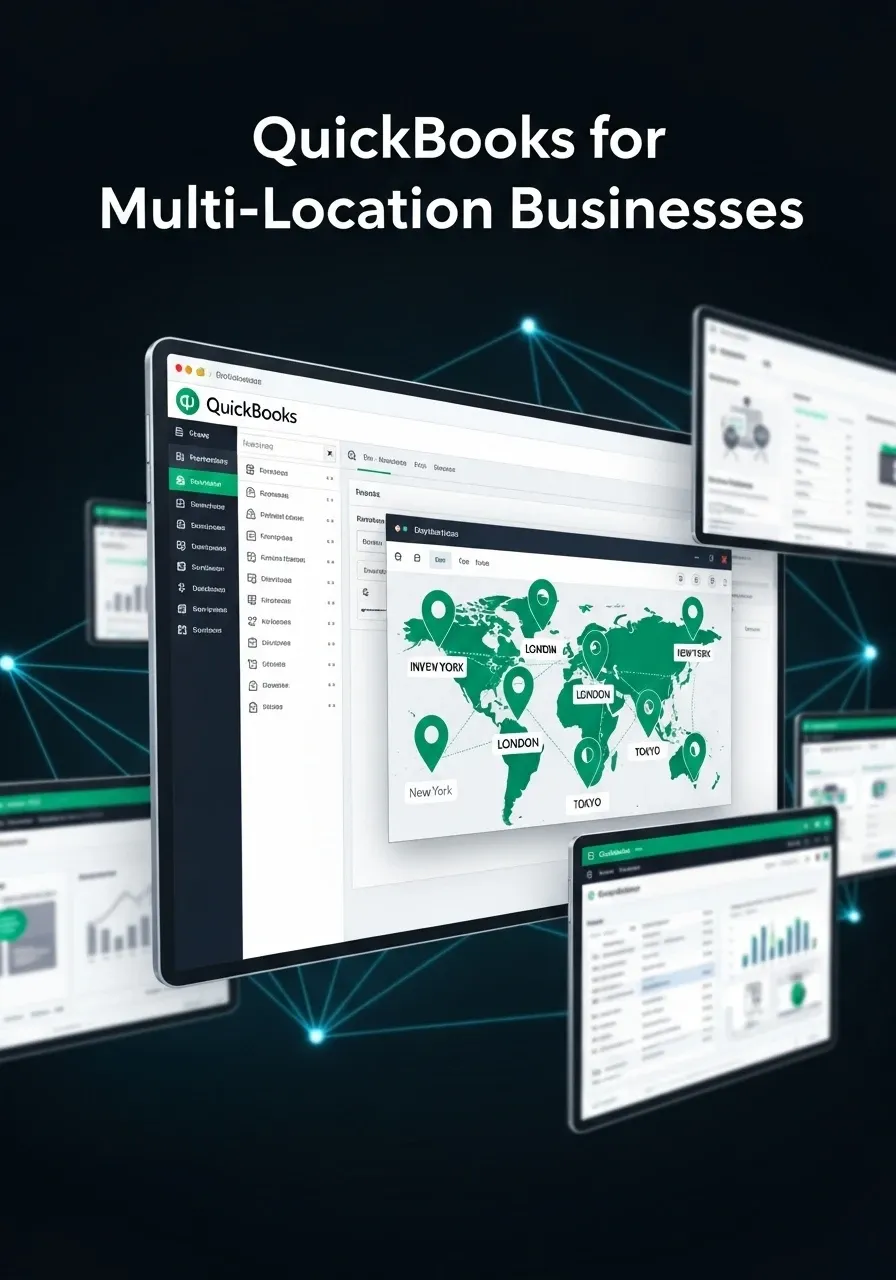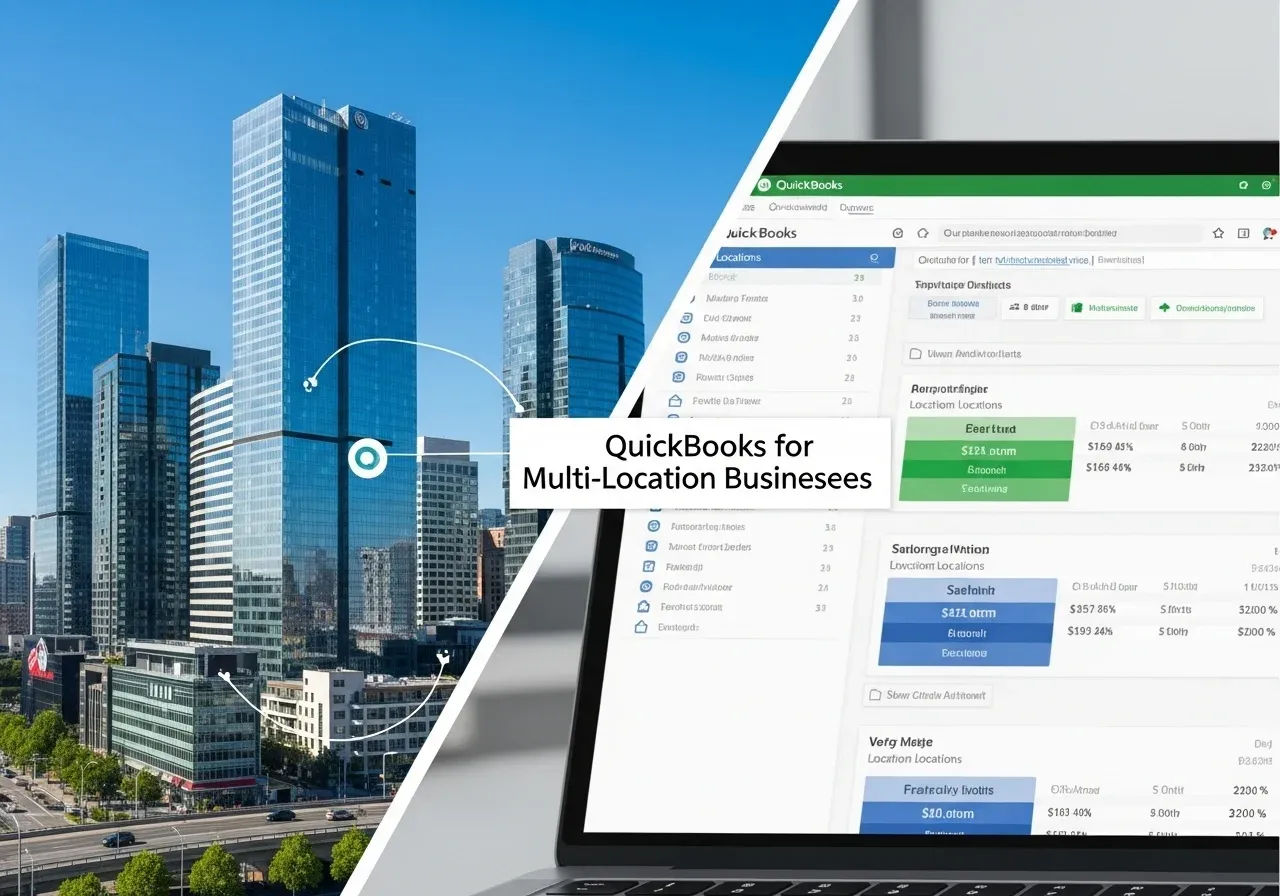Numbers never lie, and over 70% of small businesses don’t rely on any external accountant to handle their finances. Furthermore, around 40% of small and medium businesses worldwide, including retail outlets, warehouses, showrooms, and more, are now operating from more than one location. This number is continuously going up in the UAE.
Undoubtedly, expansion is great for sales, but the bigger the footprint, the harder it gets to keep the finances neat. That’s where
QuickBooks Accounting Software quietly reshapes the entire game. It has become the default choice for businesses juggling multiple locations.
What Is QuickBooks Software
Beyond just an accounting tool, QuickBooks is one of the widely adopted accounting platforms globally. In 1992, developed by Intuit, this family of solutions started as desktop software, but has now grown into cloud-based versions. As of 2025,
QuickBooks Online is working in over 130 countries with a mix of small businesses, accountants, consultants, and larger companies with multiple outlets.
Here’s the interesting part: more and more of those users are coming from regions like the GCC, where business expansion is rapid and regulations around tax (like VAT) demand precision.
So if we’re talking about “what is it,” the simple answer is: it’s
accounting software that has evolved into a complete business management solution.
Which Companies Run Multiple Locations
Multiple outlets often bring complexity, and not every company needs this. Yet many do.
- Retail Chains: It includes clothing stores, pharmacies, and supermarkets, with multiple outlets.
- F&B Industry: Plenty of restaurants and cafés are operating with multiple branches, franchises, or delivery-only kitchens across the world.
- Service businesses: Their aim is to provide services. Cleaning companies, consultancies, or maintenance providers are in that list.
- Apart from these, several manufacturing companies, trading companies, warehouses, and construction companies are also there.
Honestly, without a unified system, decisions often end up on guesswork rather than numbers. And that can lead to overstocking at one store, while understocking at another, while not spotting a branch that is running out of loss.
Fragmentation Data: Suppose you are running two branches in separate places from a Dubai-based headquarters. While one store sends you reports in Excel, and another uses software. With time, this mismanagement becomes a nightmare.
Cash Flow Tracking: Different branches use several payment options. One branch might be cash-heavy while another is card-heavy. Reconciling bank deposits across the locations sometimes gets messy.
Inventory mismatches: If the above challenges are not enough, then warehouses might show stock on paper that doesn’t exist in reality. Overall, stock in one location may not reflect in another, leading to over-ordering or shortages.
Delayed reporting: By the time all locations send in their weekly reports, the numbers are already outdated, and you can’t make any decisions due to a lack of data..
Tax compliance issues: Different states or countries often have distinct tax rules, and without unified accounting,
VAT calculations across multiple branches may get complicated.
How QuickBooks Removes These Issues
Already built with multi-location businesses in mind,
QuickBooks Cloud seamlessly consolidates everything into one system.
Unified data: Owners can view the reports for every branch, while QuickBooks allows users to record transactions into one system.
Real-time updates: Now you don’t need to wait for emails or end-of-month reconciliations because data is updated instantly.
Inventory tracking: It makes inventory tracking easier by syncing stock movements across multiple warehouses or stores.
User roles: You can maintain data privacy by giving limited and role-specific access. For example, different branch managers can access their branches only, but the head office keeps full control.
Multi-currency support: Businesses trading across borders are already habituated with multi-currency transactions.
QuickBooks Support makes that less complicated by automatically converting multiple currencies, including AED, USD, EUR, etc.
Here, QuickBooks really proves its Value by retaining everything under one roof instead of keeping records in separate systems. Besides, you are able to add users for each branch, assign permissions, and still keep centralized control as the owner.
How to Separate Two Branches in QuickBooks Online
Till now, we were just discussing the theory. Now let’s delve into the practical. Most of you may ask, “Can I separate my branches in QuickBooks?”.
Well, it’s a yes. Using QuickBooks Online, you can instantly do that without creating multiple email IDs or companies. As discussed earlier, users can track their financial data from different places while handling multiple branches in a single account. You just need to set up location tracking to categorize data.
Let’s see how to do it.
- Start by tapping the gear icon.
- Now go to the Advanced option by selecting Account and Settings.
- You can see the Track Location Checkbox in the Categories section. Select that.
- You can add your preferred locations now.
Now you can manage multiple sites from one account using QuickBooks Software.
So the adoption of QuickBooks in the UAE has grown alongside VAT enforcement and the expansion of SMEs into multiple outlets.
At
Penieltech, we have noticed this growth carefully. As a provider of QuickBooks Support, setup, and training, we help companies adapt the Software to their unique needs.


